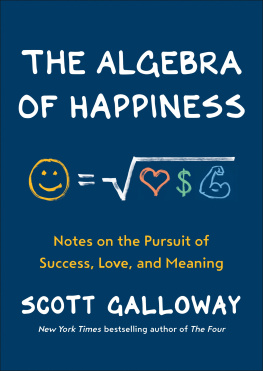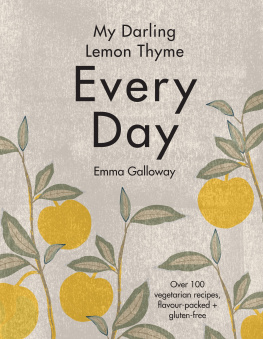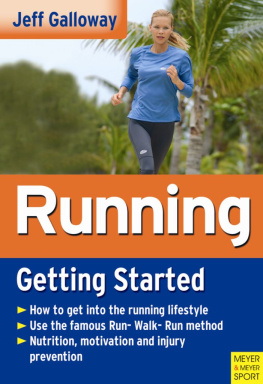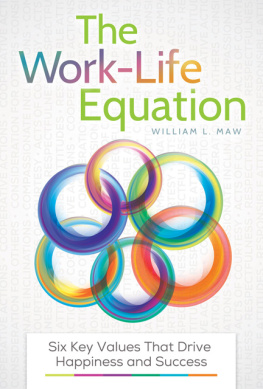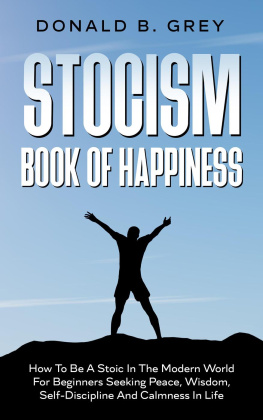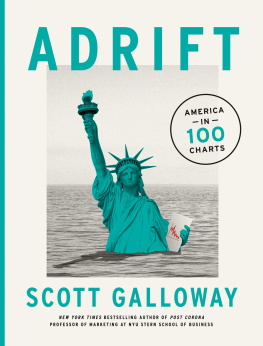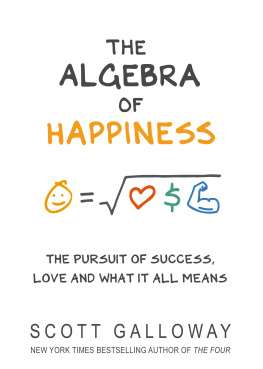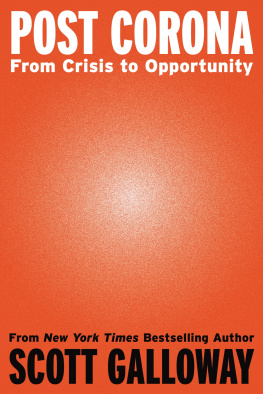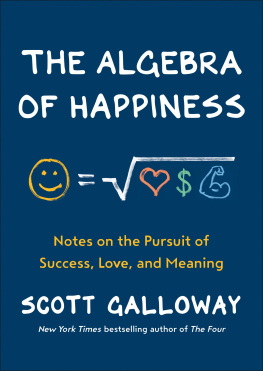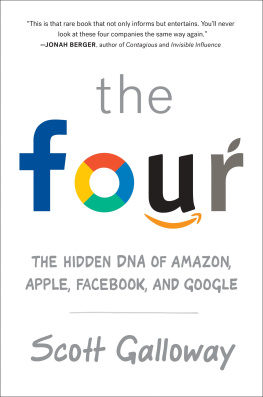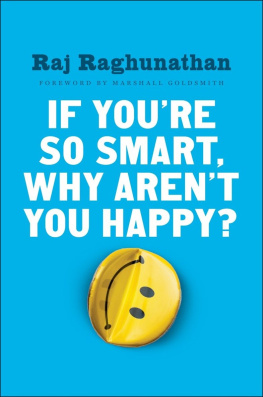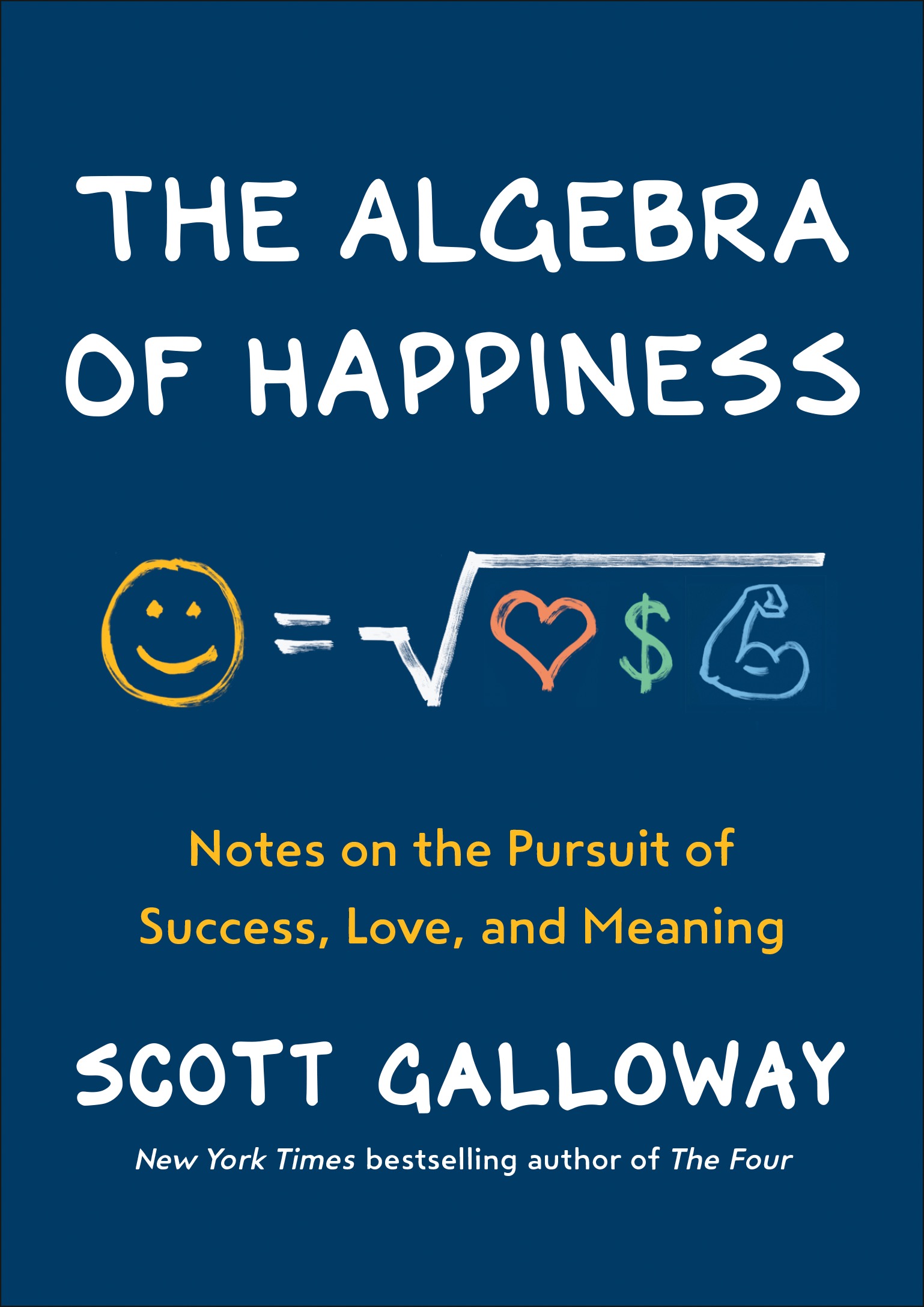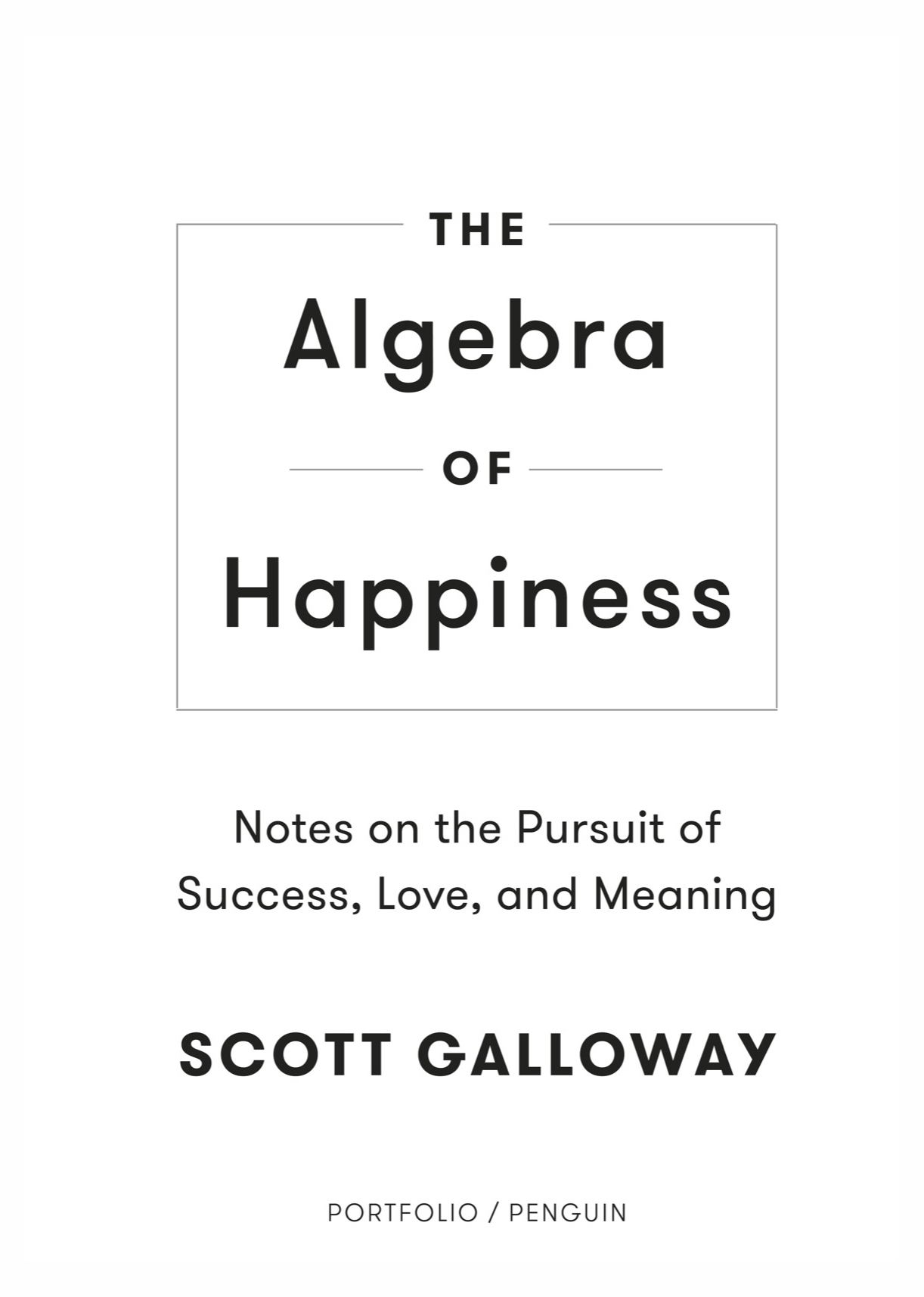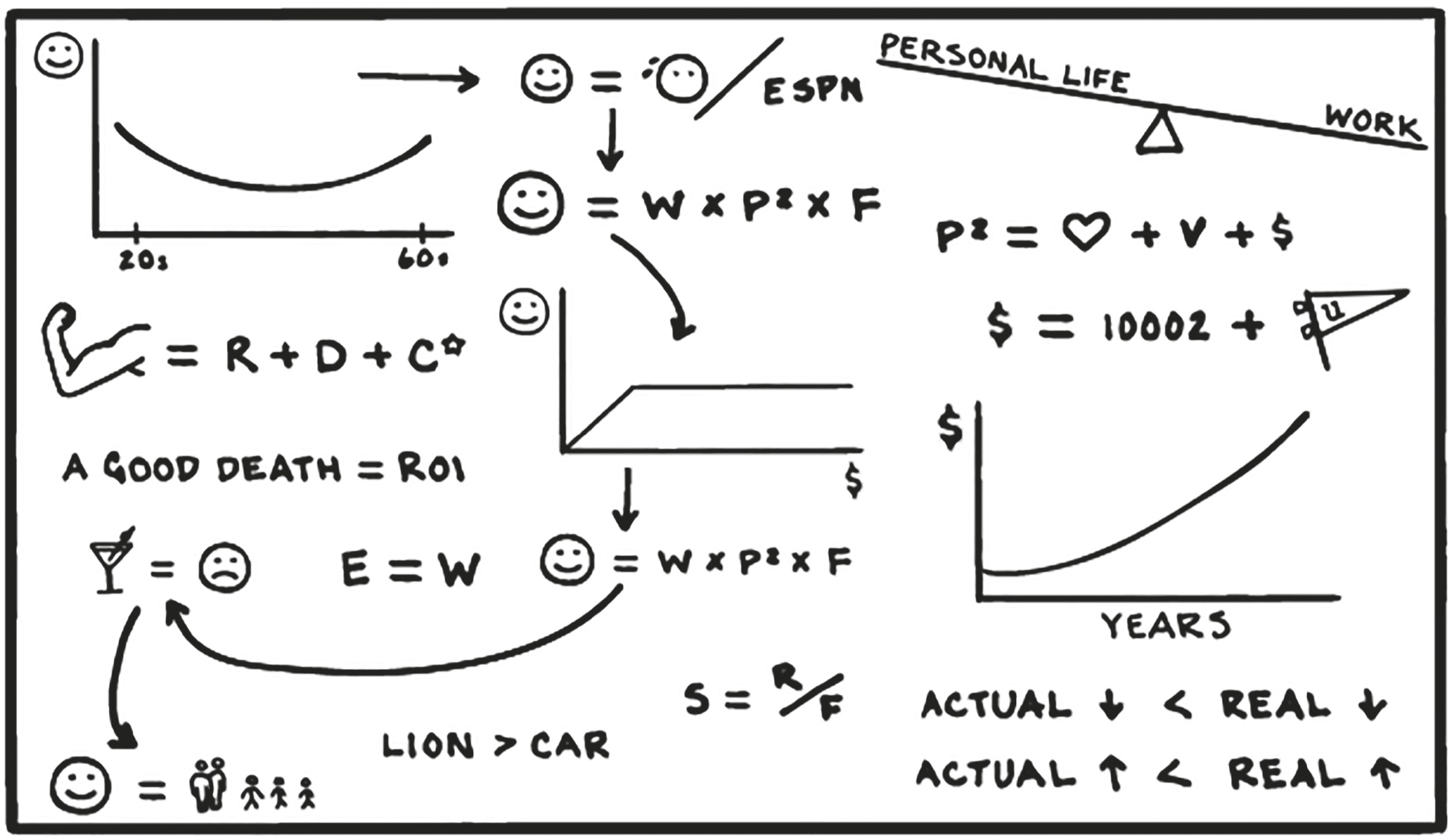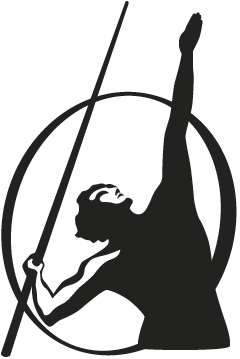
Portfolio / Penguin
An imprint of Penguin Random House LLC
penguinrandomhouse.com
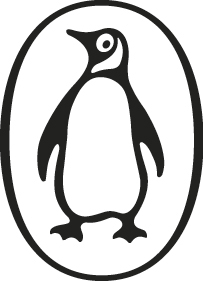
Copyright 2019 by Scott Galloway
Illustrations by Kyle Scallon, except p. by Zac Norris
Illustration art director: Julia Cagninelli
Penguin supports copyright. Copyright fuels creativity, encourages diverse voices, promotes free speech, and creates a vibrant culture. Thank you for buying an authorized edition of this book and for complying with copyright laws by not reproducing, scanning, or distributing any part of it in any form without permission. You are supporting writers and allowing Penguin to continue to publish books for every reader.
Library of Congress Cataloging-in-Publication Data
Names: Galloway, Scott, 1964- author.
Title: The algebra of happiness : notes on the pursuit of success, love, and meaning / Scott Galloway.
Description: New York : Portfolio, 2019.
Identifiers: LCCN 2019001341 (print) | LCCN 2019004441 (ebook) | ISBN 9780593084182 (ebook) | ISBN 9780593084199 (hardback)
Subjects: LCSH: Self-actualization (Psychology) | Happiness. | Success. | BISAC: SELF-HELP / Personal Growth / Happiness. | SELF-HELP / Personal Growth / Success. | BUSINESS & ECONOMICS / Motivational.
Classification: LCC BF637.S4 (ebook) | LCC BF637.S4 G355 2019 (print) | DDC 650.1--dc23
LC record available at https://lccn.loc.gov/2019001341
Penguin is committed to publishing works of quality and integrity. In that spirit, we are proud to offer this book to our readers; however, the story, the experiences, and the words are the authors alone.
While the author has made every effort to provide accurate telephone numbers, internet addresses, and other contact information at the time of publication, neither the publisher nor the author assumes any responsibility for errors or for changes that occur after publication. Further, the publisher does not have any control over and does not assume any responsibility for author or third-party websites or their content.
Cover illustration by Kyle Scallon and Alex Camlin
Version_1
For
George Thomas Galloway
(aka Dad)
Contents
Introduction
The Algebra of Happiness
I N 2002 , I joined the faculty of NYUs Stern School of Business. More than five thousand students have taken my Brand Strategy course.
My students are an impressive group, ranging from Marines from Georgia to IT consultants from Delhi. They are there to learn the time value of money, strategy, and consumer behavior. But our time together frequently veers from brand strategy to life strategies: What career should I choose? How can I set myself up for success? How do I reconcile ambition with personal growth? What can I do now so that I dont have regrets when Im forty, fifty, or eighty?
We address these questions in the most popular session: the final, three-hour lecture titled The Algebra of Happiness. In the session, we examine success, love, and the definition of a life well lived. In May 2018, we posted an abridged version on YouTube. The video was viewed by over 1 million people in the first ten days. My publisher was nudging me to write a follow-up book to The Four: The Hidden DNA of Amazon, Apple, Facebook, and Google, and much to her horror, I informed her my second book would be about happiness.
I have no academic credibility or credentials to indicate I should counsel people on how to live their lives. Ive had several businesses fail, was divorced by thirty-four, and recently had the most successful venture capitalist in history contact the partners at General Catalystmy backers at L2to discourage them (no joke) from investing in L2 because I was insane. Note: General Catalyst invested anyway and did (really) well.
In fact, youd need to squint pretty hard to view my life as a framework for happiness. I grew up an unremarkable kid in California in the seventies, skinny and awkward. I got mediocre grades, and didnt test well either. I applied to UCLA and was rejected, which didnt seem like a big dealmy father assured me that Someone with your street smarts doesnt need college. I had no street smarts, just a father with a new family who didnt want to pay for college. He did, however, secure me a job installing shelving. The job paid $15 to $18 an hour, which seemed like a lot of money. I could buy a nice car, my only real goal at the time.
During twelfth grade, after school, wed walk into Westwood Village and get ice cream. My friends would shoplift. Id head home when my friends started shoving Peter Frampton shirts into their pantsnot because I was more ethical than them, but because my single mother couldnt handle a call from the LAPD to come get me. Walking back from Westwood Village I crossed Hilgard Avenue, where UCLA sororities lined the street. It was homecoming week, and there were thousands of young women standing in front of their houses singing songs and generally looking like a cross between a Norman Rockwell painting and a late-night Cinemax movie.
At that moment, I decided I needed to go to college and went home to write another letter to UCLA admissions. I told them the truth: I am a native son of California, raised by an immigrant single mother who is a secretary, and if you dont let me in, Im going to be installing shelving for the rest of my life. They admitted me nine days before classes started. My mom told me that, as the first person to attend college on either side of the family, I could now do anything.
As my options were now limitless, I committed to spending the next five years smoking a shit-ton of pot, playing sports, and watching the Planet of the Apes trilogy several dozen times, only taking breaks from this routine for random sexual encounters. Except for the last part, I was hugely successful.
By senior year, most of my friends were getting their act together, focusing on grades, grad school, or getting a job. As no good deed goes unpunished, I rewarded the generosity of California taxpayers and the vision of the Regents of the Unversity of California with a 2.27 GPA. I needed a fifth year at UCLA, as I had failed seven classes and didnt have the credits to graduate. Again, not a big deal, as there were more pot and sci-fi movies to be consumed, and there was nothing compelling waiting for me in the real world.
My last year I had a roommate who was very ambitious, and I felt an odd sense of competition with him. He was obsessed with being an investment banker. I didnt know what investment banking was, but if Gary wanted to do it, I would do it, too. I interviewed well, lied about my grades, and secured a job as an analyst with Morgan Stanley. It helped that the head of the group, like me, had rowed crew in college and had decided that all oarsmen were destined to be great investment bankers.
After an unremarkable stint in investment banking, I decided Id apply to business school, as I had no idea what I wanted to do, and my girlfriend and best friend were both headed to B-school. The state of California took yet another risk on me, and I was admitted to Berkeleys Haas School of Business. During my second year I was inspired by a professor, David Aaker, who taught brand strategy. While still in school, I founded a strategy firm, Prophet. Prophet did well, and I eventually sold it to Dentsu. In 1997, we decided to incubate several e-commerce firms in the basement of Prophets office, as thats what an MBA with a shaved head did in the nineties in San Francisco. In sum, I was beginning to hit my stride with the winds of processing power and the internet at my back.

